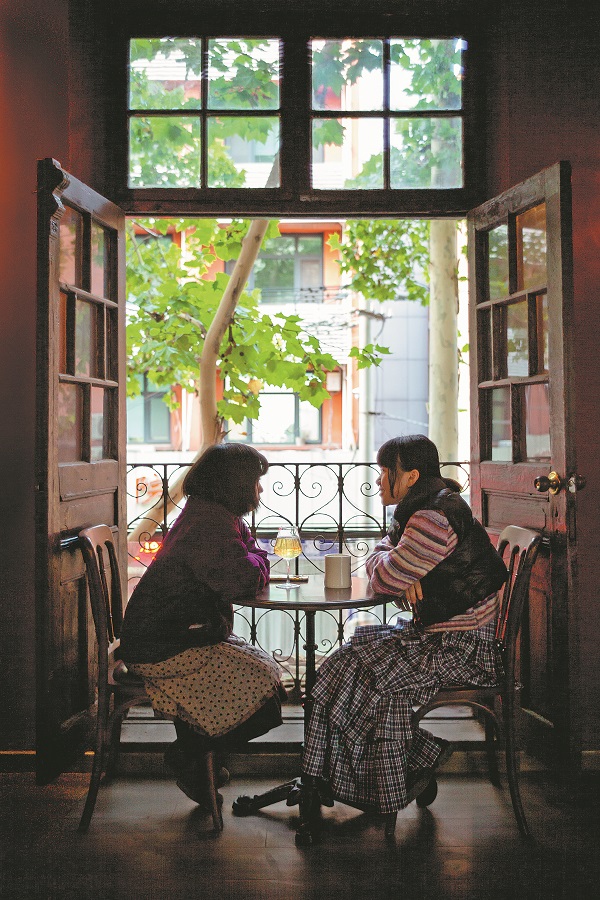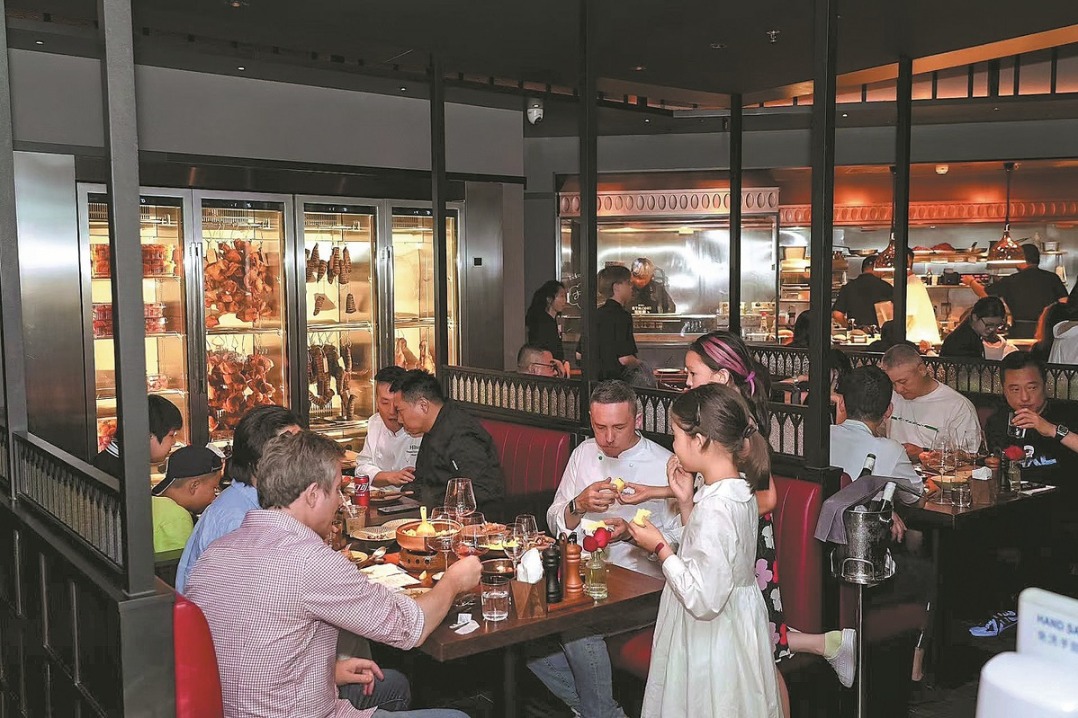Intimate, busy bistros bite into nation's restaurant industry
Innovative takes on regional dishes inspire new dining trend


Domestic produce, wine
Four years ago, Jia Yukun opened a barbecue restaurant in Beijing, grilling premium goat from the Inner Mongolia autonomous region in traditional Japanese yakiniku style. Business was steady, but unremarkable.
Then, in 2021, he noticed a shift in Beijing's dining sector. White Tiger Village had taken the city by storm, by blending regional flavors with a modern, laid-back dining atmosphere.
For Jia, this was a revelation. "Seeing how local bistros elevated traditional dishes with refined presentations made me think we could do something similar," said Jia, 32.
"Inner Mongolia has incredible ingredients, and with a little creativity, we could offer something fresh."
Jia rebranded his restaurant as Bistro Strong, transforming it into a haven for northwest Chinese cuisine with a contemporary twist. The change proved timely. As pandemic restrictions eased, the restaurant gained traction and opened a second eatery in Beijing this year.
Bistro Strong's menu is rooted in Inner Mongolia's culinary traditions, but is also inventive. Dishes include fresh milk skins, tender hand-grabbed goat, and Hohhot-style shumai, all crafted with meat sourced from four-year-old white cashmere goats raised in the rugged mountain areas in Inner Mongolia.
"Goats from that region, because of the harsh terrain, produce meat that's clean and uniquely flavorful," Jia said. "It's the best goat I've ever eaten — no gaminess, just a subtle aroma, and the fat has a creamy, almost milky quality."
Jia has also brought his own flair to traditional recipes, creating air-dried, aged marinated goat with Chinese spices and aged in-house.
Drinks are integral to the experience, accounting for a quarter of Bistro Strong's revenue. French wines dominate the drinks list, but Jia is also on a mission to showcase Chinese wines. "We want people to see that China produces some incredible wines," he said.
Despite steady business throughout the year, Jia has noticed an odd trend — holidays like Labor Day and National Day are often slower, as most of his patrons are Beijing locals who travel during these periods.
Jia, who trained in Western cuisine in Switzerland, sees no hard boundary between Chinese and Western culinary philosophies. "Chinese cuisine already has world-class ingredients and techniques," he said. "It's just about presentation and creativity."
With two successful restaurants in Beijing, Jia is setting his sights on Shanghai, a city he describes as a natural home for sophisticated yet accessible dining. "There's an atmosphere of appreciation for elevated food experiences in Shanghai," he said.
























